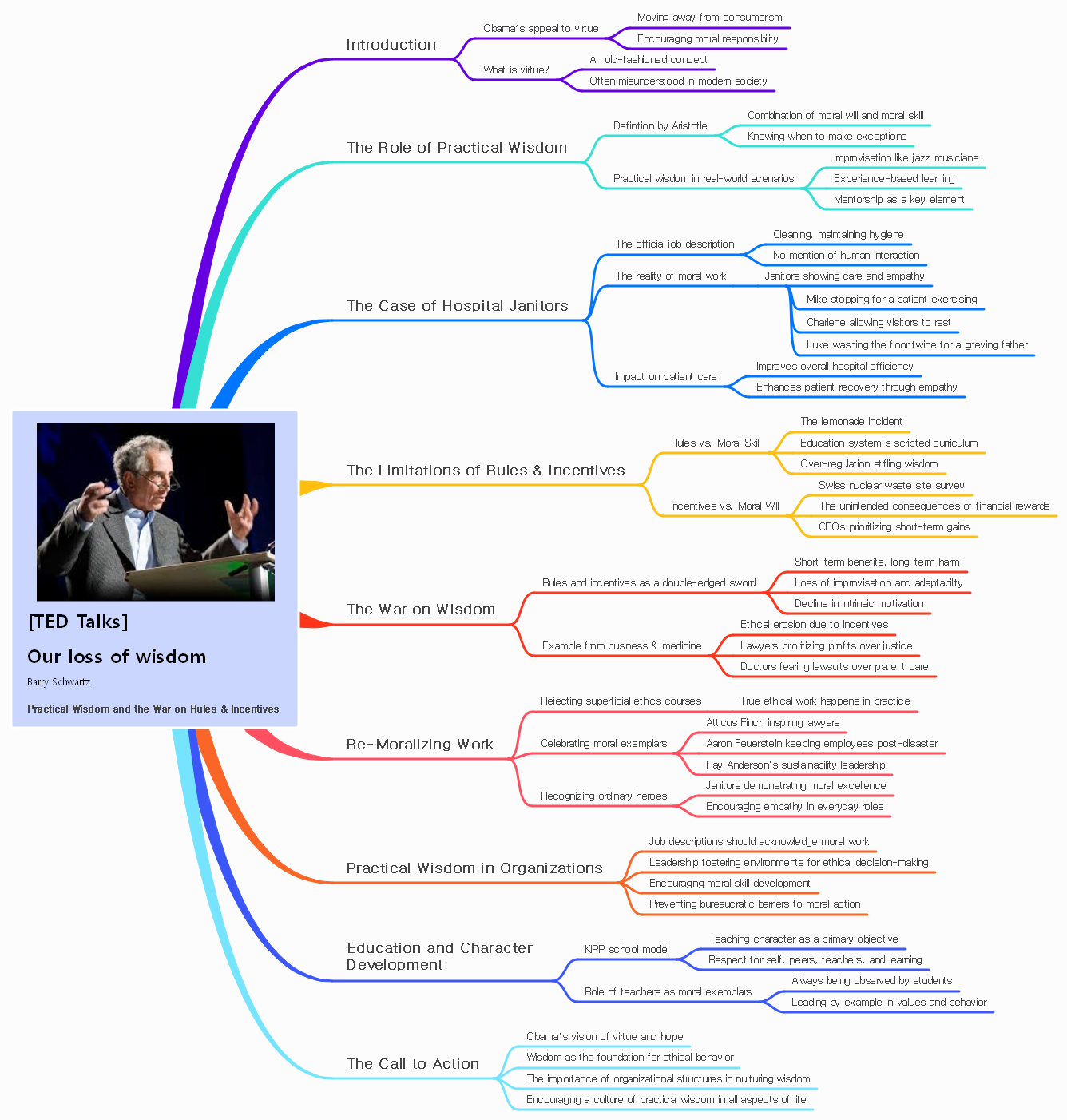🎤 Introduction
Obama’s inaugural address emphasized the need for virtue over blind consumerism. Rather than urging people to spend money or follow rigid rules, he called for moral responsibility.
📌 What is Virtue?
- Often seen as outdated
- Misunderstood in modern society as either unnecessary or rigid
🎯 The Role of Practical Wisdom
Aristotle defined practical wisdom as the combination of moral will and moral skill. It enables people to navigate complex situations by making ethical exceptions when necessary.
🎷 Improvisation in Real Life
- Like jazz musicians adapting to different rhythms
- Learning through hands-on experience
- Guided by mentorship and real-world applications
🏥 The Case of Hospital Janitors
Official job descriptions focus on cleaning and hygiene, yet they fail to mention the human interactions that shape patient care.
💖 Acts of Empathy
- Mike paused mopping so a patient could exercise
- Charlene skipped vacuuming to let grieving visitors rest
- Luke cleaned a room twice for a grieving father’s peace of mind
🚀 Impact on Patient Care
- Contributes to hospital efficiency
- Empathy speeds up recovery and boosts morale
⚖️ The Limitations of Rules & Incentives
Rules and incentives are often used as quick fixes, but they lack the depth needed for ethical decision-making.
🚧 Rules vs. Moral Skill
- The lemonade incident: Bureaucratic rules led to a child being placed in foster care unnecessarily
- Education system rigidity: Over-scripted curriculums prevent teacher autonomy
- Over-regulation: Prevents moral skill development
💰 Incentives vs. Moral Will
- Swiss nuclear waste study: Citizens were less willing to host a site when money was introduced
- Financial incentives backfiring: CEOs prioritizing short-term profits over ethics
🏛️ The War on Wisdom
Over-reliance on rules and incentives leads to:
- Short-term problem-solving but long-term decline in wisdom
- Loss of adaptability and creative problem-solving
- Decline in intrinsic motivation
🏢 Ethics in Business & Medicine
- Lawyers choosing profit over justice
- Doctors ordering unnecessary procedures to avoid lawsuits
🌱 Re-Moralizing Work
❌ The Problem with Ethics Courses
- Ethical behavior cannot be taught in a classroom alone; it must be practiced
🌟 Celebrating Moral Exemplars
- Atticus Finch inspiring young lawyers
- Aaron Feuerstein keeping employees post-factory fire
- Ray Anderson leading sustainability efforts
🎭 Recognizing Everyday Heroes
- Janitors and frontline workers exhibiting moral excellence
- Encouraging empathy and integrity in daily work
🏢 Practical Wisdom in Organizations
- Job descriptions should reflect the ethical dimension of work
- Leaders should foster environments for ethical decision-making
- Encouraging employees to develop moral skills
- Preventing bureaucratic barriers to ethical action
📚 Education and Character Development
🏫 KIPP School Model
- Prioritizing character development over standardized testing
- Teaching respect for self, peers, and teachers
👩🏫 Teachers as Moral Role Models
- Students observe teachers daily
- Leading by example in ethical values and decision-making
🌎 The Call to Action
Obama emphasized that virtue and hope are essential to a thriving society. Wisdom should be the foundation of ethical behavior in all professions and daily life.
🔑 Key Takeaways
- Organizational structures should nurture, not suppress, moral wisdom
- Encouraging ethical culture in workplaces, schools, and institutions
- Paying attention to our actions and their impact on others
🔗 Hashtags
#PracticalWisdom #Ethics #MoralLeadership #Virtue #RulesVsWisdom #Education #BusinessEthics #Empathy #TEDTalks #BarrySchwartz
